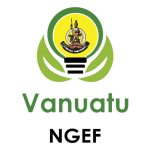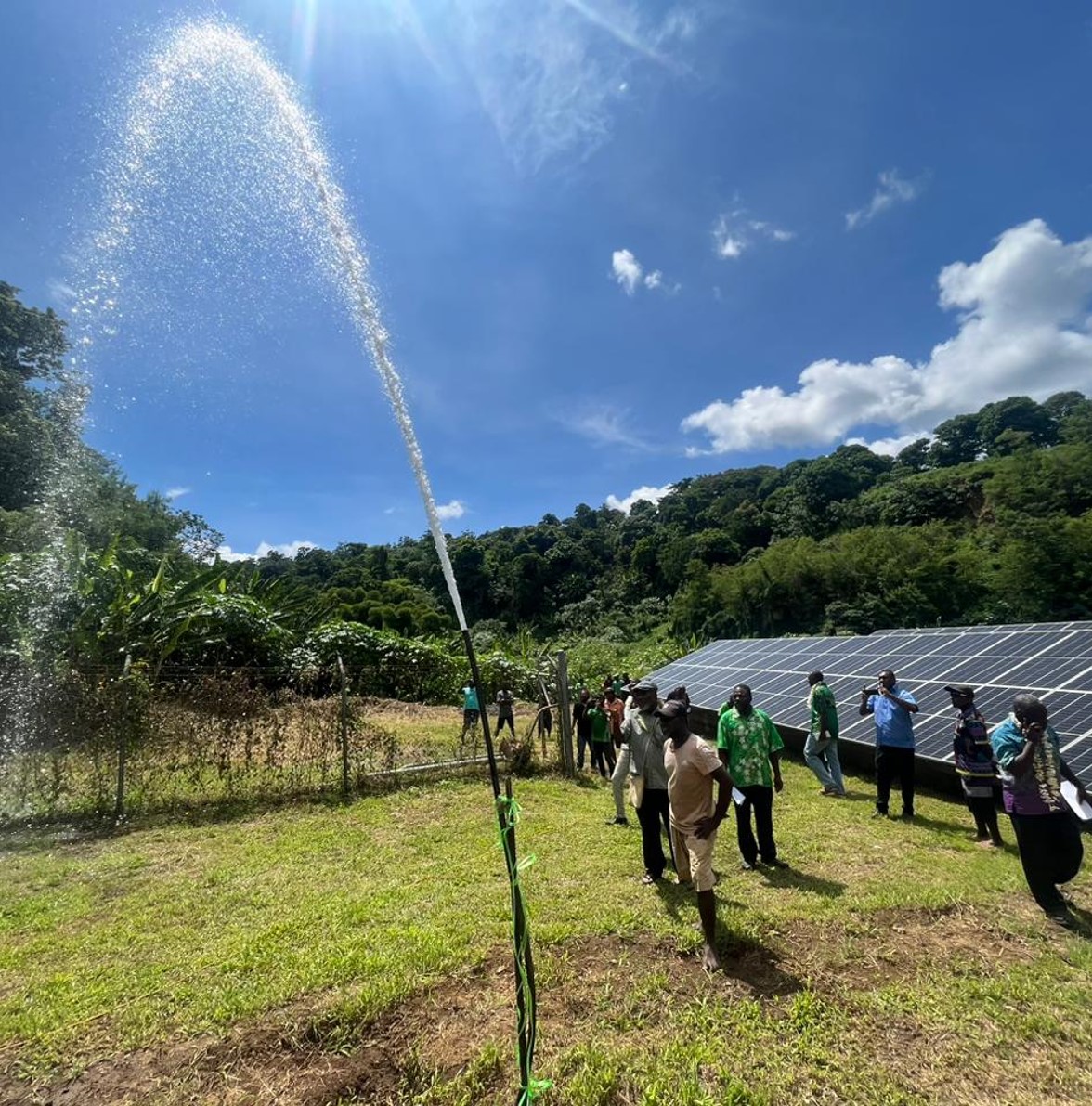Empowering Vanuatu’s remote communities with clean energy and fresh water
Funding round: Quickstart
Country: Vanuatu
Sector: Water | Education | Healthcare
Over 4,700 people across eight rural communities in Vanuatu’s Santo, Paama, Tanna, and Malekula islands will soon benefit from better water security, sanitation and hygiene, together with reliable, clean energy to power their health centres and schools.
Led by the Global Green Growth Institute (GGGI), this two-year REnew Pacific project will replace diesel-powered water pumps with solar-powered water pumping systems, providing a sustainable and climate-resilient solution that significantly reduces operational costs. In addition, 24 health centres and schools will be equipped with standalone solar and battery storage systems, ensuring a reliable and affordable power supply.
The project will support local employment, offering local community members training in technical maintenance, financial management and system governance to ensure its long-term sustainability and economic benefits for rural households.
By providing reliable clean, green power to health centres, schools and water systems, the project will improve access to critical services, boost local rural economies and increase their climate resilience, all while advancing Vanuatu’s goal of universal energy access and long-term sustainable development.
$2,999,761
$2,999,761
DFAT contribution
$801,147
$801,147
Partner contribution
$3,800,908
$3,800,908
Total funding
Partner

The Global Green Growth Institute Pacific team works in Fiji, Kiribati, Vanuatu, Tonga and Papua New Guinea to create a climate-resilient world through green sustainable growth.

The National Green Energy Fund is a financial vehicle designed to assist the Vanuatu Government to achieve its National Energy Roadmap targets through both public and private investment in technology and infrastructure across Vanuatu. It aims to boost households and public institutions’ energy access, while also providing a pathway for local businesses and industries to invest in clean, climate-resilient energy that meets their economic needs, creating transformative opportunities for rural communities.
About this project

This two-year REnew Pacific project will benefit over 4,700 people across eight rural communities in Vanuatu’s Santo, Paama, Tanna, and Malekula islands by installing solar-powered water pumping systems that will improve water security, sanitation and hygiene. It will also equip 24 health centres and schools with standalone solar photovoltaic (PV) systems and battery energy storage, providing reliable, clean energy for essential services.
The project is led by the Global Green Growth Institute (GGGI) and supported by the National Green Energy Fund (NGEF), the Department of Water Resources (DoWR), the Ministry of Education and the Ministry of Health. It’s set to support local employment, offering local community members training in maintenance, financial management and system governance to ensure the long-term sustainability of the systems while contributing to local economic growth.
Aligned with Vanuatu’s National Energy Roadmap and climate resilience goals, the project aims to reduce CO2 emissions by at least 1,500 tonnes over its lifespan. It will power greater climate resilience for these local communities, enabling greater access to clean water, energy and essential services while supporting Vanuatu to achieve its goal of 100% electrification with renewable energy by 2030.
Context
Rural communities in Vanuatu face significant challenges related to energy and water access, which directly impact their wellbeing, economic opportunities and climate resilience. Only 17% of rural households have access to electricity, compared to 80% in urban areas. This disparity is compounded by the reliance on diesel-powered generators, which make up nearly half the country’s energy mix. These generators are costly, vulnerable to supply chain disruptions, extreme weather and rising fuel prices exacerbated by climate change.
Access to clean water is also a challenge. Communities often rely on manual water collection or diesel-powered pumps, which are also expensive and prone to breakdowns. This lack of reliable water access impacts sanitation, hygiene and community health.
Diesel fuel is not only expensive but it’s also dirty, noisy and polluting. Its high operational costs mean communities often can’t afford to run the generators consistently, leading to unreliable access to power and water. This energy insecurity limits economic growth and quality of life in rural areas.
Health and education services are also severely affected by unreliable energy supply. Rural health centres struggle to properly refrigerate vaccines and medicines, power essential medical equipment or provide lighting for emergency operations, which compromises the quality and availability of healthcare in these areas. Schools also lack electricity, limiting access to digital learning tools, internet connectivity and lighting, which negatively impacts educational outcomes, particularly for women and children.
This project addresses these challenges through reliable solar infrastructure to supply clean water and power healthcare and education settings. Installing solar water pumping systems and solar PV systems with battery storage will improve climate resilience, strengthen essential services and create long-term economic and social benefits for rural Vanuatu communities.
Through our REnew Pacific project, GGGI is helping ensure that no child misses school, no vaccine is lost for lack of power and no one walks miles for clean water in Vanuatu’s rural communities.
– Andres Torres
GGGI Pacific
